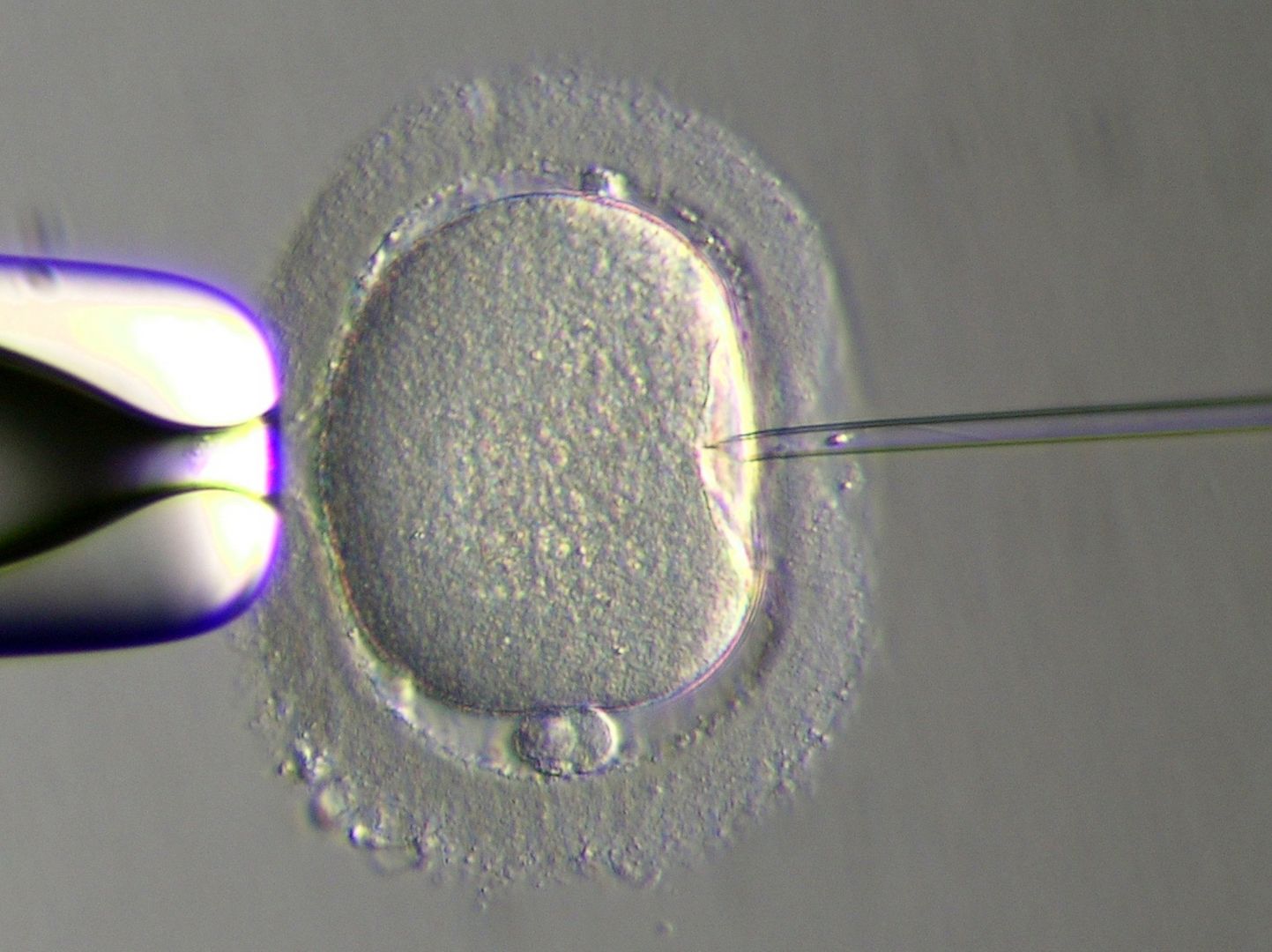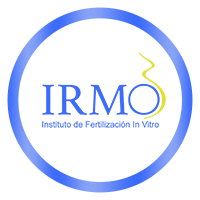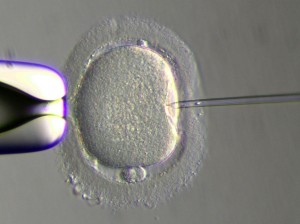
O(ICSI) Sperm injection
Intracytoplasmic sperm injection (ICSI)
It is a technique that has its origin in difficult cases by sterility of unknown origin, or by another type of sterility, which attempts to introduce male sperm directly into the egg. Only one sperm is needed to fertilize the oocyte. This technique has allowed that men who were previously almost dismissed, today are genuine candidates to natural parenting, since you can even capture sperm aspirated from the epididymis or testis biopsy.
At 16 – 20 h of having contacted the sperm with the egg; whether through IVF or ICSI, it can be observed if fertilization has occurred. The next two days it is evaluated if the embryos are dividing correctly, and three days after removing the eggs they are transferred to the uterus. No anesthesia is required. The maximum transfer is three embryos to avoid multiple pregnancies.
Artificial insemination:
It consists of introducing fertile semen in the womb coinciding with ovulation in the female. So the sperm is isolated from other components of semen. To increase the efficiency of Artificial insemination (AI) there is a gentle ovulation stimulation so that the woman is pregnant but without causing multiple pregnancy.
It is a simple technique, but it requires at least five million mobile sperm and that the wife does not have blocked fallopian tubes. The efficiency is 15-20% per cycle.
The third or fourth attempt without achieving the objectives pursued, indicates the need to use other techniques like ICSI or IVF (“in Vitro” fertilisation). Use of donor sperm – always under strict awareness of the partner – is done in cases where it is impossible to use sperm capable of fertilizing.
In vitro fertilization
The IVF is a technique by which the fertilization of the egg by the sperm is carried out outside the mother’s body. IVF is the main treatment for infertility when other methods of assisted reproduction have not been successful. The process involves the hormonal control of the process of ovulation, extracting one or several oocytes of the maternal ovaries, to allow that they are fertilized by sperm in a liquid medium. The fertilized oocyte (which some call as preembryo) can then be transferred to the uterus of the woman, in order to nest in utero and continue its development until birth.
THERE ARE TWO OPTIONS:
SPERM FROM PARTNER
In Vitro Fertilization with sperm from partner is indicated in:
Patients who have failed at other treatments, such as Artificial insemination.
When we have a limited number of oocytes.
Cases of severe male factor infertility.
Women with absence or lesion in the fallopian tubes.
Women with advanced endometriosis.
DONOR SPERM
In Vitro Fertilization with donor sperm is indicated in cases of:
Severe male factor infertility.
In the case of women without a male partner
Previous failure of fertilization with sperm from partner.
Repeated implantation failure or poor embryo quality.
Male carriers of genetic disease.
In Irmo, we have answers to your needs.
Please consult us.





